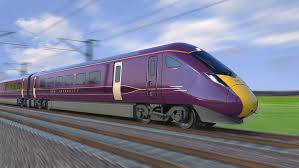
The Evolution of Railway Services: Connecting Communities and Enhancing Travel
Railway services have played a pivotal role in shaping the way we travel and connect with one another. From their humble beginnings in the early 19th century to the sophisticated networks we see today, railways have been a cornerstone of transportation infrastructure across the globe.
One of the key advantages of railway services is their ability to efficiently transport large numbers of passengers and goods over long distances. Trains offer a reliable and cost-effective mode of travel, making them a popular choice for commuters, tourists, and businesses alike.
With advancements in technology and infrastructure, railway services have evolved to offer enhanced comfort, safety, and speed. Modern trains are equipped with state-of-the-art amenities, such as Wi-Fi connectivity, onboard entertainment systems, and luxurious seating options.
Moreover, railway services play a crucial role in reducing traffic congestion and carbon emissions. By promoting sustainable travel options, trains help alleviate environmental pressures while providing convenient alternatives to driving or flying.
Railway services also play a vital role in connecting communities that may otherwise be isolated. Trains link urban centres with rural areas, facilitating economic growth, cultural exchange, and social cohesion.
As we look to the future, railway services will continue to innovate and adapt to meet the changing needs of passengers and society as a whole. High-speed rail projects, improved safety measures, and increased accessibility for all travellers are just some of the developments on the horizon for this essential mode of transportation.
In conclusion, railway services have come a long way since their inception, transforming the way we travel and interact with our surroundings. As we embrace new technologies and sustainable practices, railways will remain an integral part of our transportation landscape for generations to come.
Essential Tips for a Smooth and Safe Railway Journey
- Always check the timetable before your journey to ensure you arrive on time.
- Purchase tickets in advance to save money and secure your seat.
- Be mindful of other passengers and keep noise levels to a minimum during your journey.
- Familiarize yourself with emergency procedures and exits on the train in case of an incident.
- Report any suspicious activities or items to railway staff or authorities immediately.
- Stay updated on any service disruptions or delays by following official railway communication channels.
Always check the timetable before your journey to ensure you arrive on time.
It is essential to always check the timetable before embarking on your railway journey to guarantee a punctual arrival at your destination. By familiarising yourself with the schedule, you can plan your travel efficiently and avoid any potential delays or missed connections. Staying informed about train times ensures a smooth and stress-free experience, allowing you to make the most of your journey while arriving at your intended destination on time.
Purchase tickets in advance to save money and secure your seat.
When it comes to utilising railway services efficiently, a valuable tip is to purchase tickets in advance. Not only does this practice help you save money by taking advantage of early booking discounts, but it also ensures that you secure your seat for the journey. By planning ahead and securing your ticket in advance, you can enjoy peace of mind knowing that you have a confirmed reservation and can relax during your travel without worrying about availability or last-minute price hikes.
Be mindful of other passengers and keep noise levels to a minimum during your journey.
When using railway services, it is important to be considerate of fellow passengers by keeping noise levels to a minimum throughout your journey. By being mindful of the noise you create, you contribute to a more comfortable and pleasant travel experience for everyone on board. Whether it’s refraining from loud conversations, using headphones when listening to music or watching videos, or avoiding unnecessary disruptions, showing respect for others’ space and tranquillity enhances the overall journey for all passengers.
Familiarize yourself with emergency procedures and exits on the train in case of an incident.
It is essential to familiarize yourself with emergency procedures and exits on the train to ensure your safety in the event of an incident. Knowing where the emergency exits are located and how to access them can make a significant difference during a crisis situation. By being prepared and aware of the necessary protocols, you can act swiftly and confidently to protect yourself and others in case of an emergency while travelling on the train.
Report any suspicious activities or items to railway staff or authorities immediately.
It is essential to report any suspicious activities or items to railway staff or authorities immediately while using railway services. By staying vigilant and proactive, passengers can help maintain a safe and secure environment for themselves and others. Prompt reporting of any concerns ensures that appropriate actions can be taken swiftly to address potential risks and uphold the safety of all individuals using the railway network. Remember, safety is everyone’s responsibility, and reporting any suspicious behaviour or items is a crucial step in ensuring a smooth and secure travel experience for all.
Stay updated on any service disruptions or delays by following official railway communication channels.
To ensure a smooth and stress-free journey, it is essential to stay informed about any potential service disruptions or delays. By actively following official railway communication channels, such as websites, social media accounts, and mobile apps, passengers can stay updated in real time on any changes to their scheduled train services. Being aware of disruptions allows travellers to plan accordingly, adjust their schedules if necessary, and make informed decisions to minimise inconvenience during their railway journeys.
